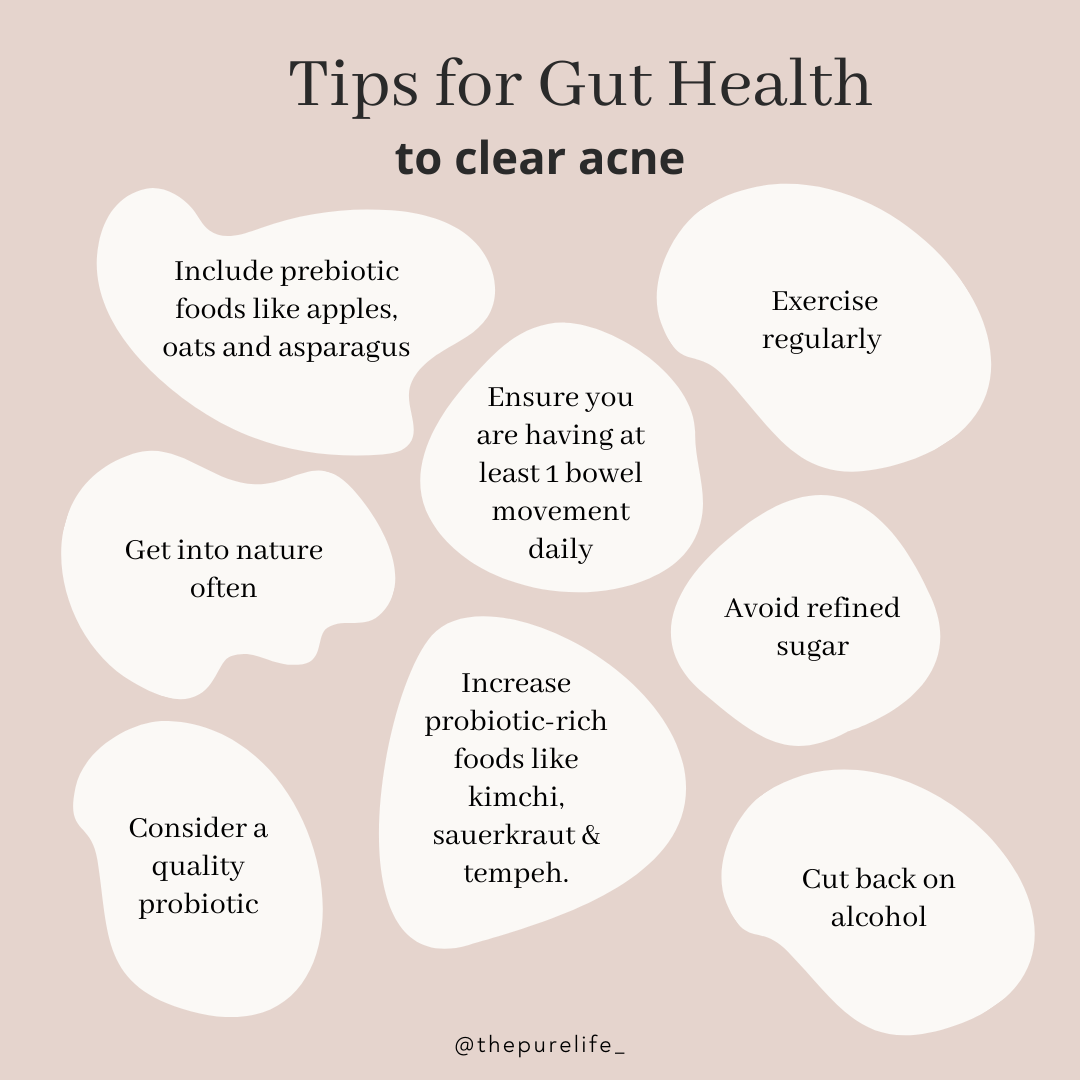SHARE
You know that pit you get in your stomach when you find yourself unwillingly committed to engage in public speaking? What about those times of heightened anxiety when you’ve found yourself running to the bathroom? Or have you ever noticed how your rashes will flare up when you’re stressed? You have probably not come this far in life and been able to evade all of these all-too-human experiences. So, I propose that intuitively, you know more about the gut-brain-skin axis than you think because these are all examples of it in action.
What is the Gut-Brain-Skin Axis?
The gut-brain-skin axis refers to the correlations between the microbiota of the gut, emotions/emotional states and inflammation both of the skin as well as systemic inflammation. What does that mean, exactly? Essentially, it means that a state of imbalance in one of these areas is often correlated with a state of imbalance in the other(s) too.
I get asked all the time, “what exactly is the gut?”. Let’s break it down:
- Your “gut” is also known as your digestive tract. Your gut microbiome is present throughout the entire digestive tract and is where billions of bacteria (both beneficial and not) live and support our entire wellbeing. However, the majority of these microbes live in our large intestine, aka the colon. Our gut microbiome plays a major role in immune health, digestive health, skin health, mental health and more. Read on to find out more…
How Does the Gut-Brain-Skin Axis Relate to Acne?
Over 90 years ago, Stokes and Pillsbury published an important hypothesis. They hypothesized that emotions may influence changes in intestinal microflora, thus contributing to systemic inflammation via increasing intestinal permeability. Over the last several decades of research, many findings that validate Stokes and Pillsbury’s gut-brain-skin theory have been observed.
One review mentioned experimental and human studies that showed that intestinal microflora was disrupted by various physiological and psychological stressors. Another review noted that the gut microbiota’s ability to influence systemic inflammation could have an important role in acne. This claim was substantiated by a study that showed the microbiome composition of patients with acne vulgaris to be distinct; specifically, these patients had reduced diversity in gut microbiota.
Research
Still feeling jumbled? That’s normal: the gut-brain-skin axis is not straight forward. The research in this area has highlighted comorbidities and correlations but no causation. In summary, we’ve seen through research that the gut, brain and skin are very much connected and the state of one can influence the state of the others, but it can look different in every individual.
How It’s All Connected
Much of the research on the gut-brain-skin axis points to intestinal permeability. This is because of its potential to contribute to systemic inflammation by triggering various immune responses. These immune responses can then manifest in the skin in conditions such as acne, eczema, psoriasis, etc.
As many as 40% of individuals with acne may also have hypochlorhydria, a.k.a., low stomach acid. This creates an ideal environment in the gut for harmful bacteria to take over, as seen in conditions like SIBO (small intestinal bacterial over growth) where hypochlorhydria is a significant risk factor. In terms of the connection to the brain and emotional states, SIBO is also strongly associated with depression and anxiety and stress is associated with low stomach acid – starting to see how it’s all connected?
Can Probiotics Help with Acne?
The main thing studied to potentially help with imbalances in the gut-brain-skin axis is probiotics. Probiotics can have a profound impact on immune reactions because of the microbiota’s heavy influence on the immune system. This includes skin inflammations like acne. After all, over 70% of the human immune system is in the gut!
One study on mice found that probiotics improved stress-induced neurogenic skin inflammation as well as retardation of hair growth. This is an important example of how probiotics can modulate the immune system systemically as well as locally in the gut.
Diet can also modulate the microbiome. This is an ongoing and emerging field of study with many complexities, but an exciting one none the less. This is why I love promoting diets rich in pre- and pro-biotic foods in my work with women struggling with acne, gut health issues and mental health struggles.

How to Clear Your Acne
Looking for ways to support your microbiome and learn about natural acne clearing methods? The Acne Protocol is your new best friend. As a holistic nutritionist, I focus on healing acne through diet, supplements and lifestyle changes (read about that here!) The brain, gut and skin are all addressed through The Acne Protocol.
Start your acne clearing journey today by grabbing your copy here!
Studies referenced:
